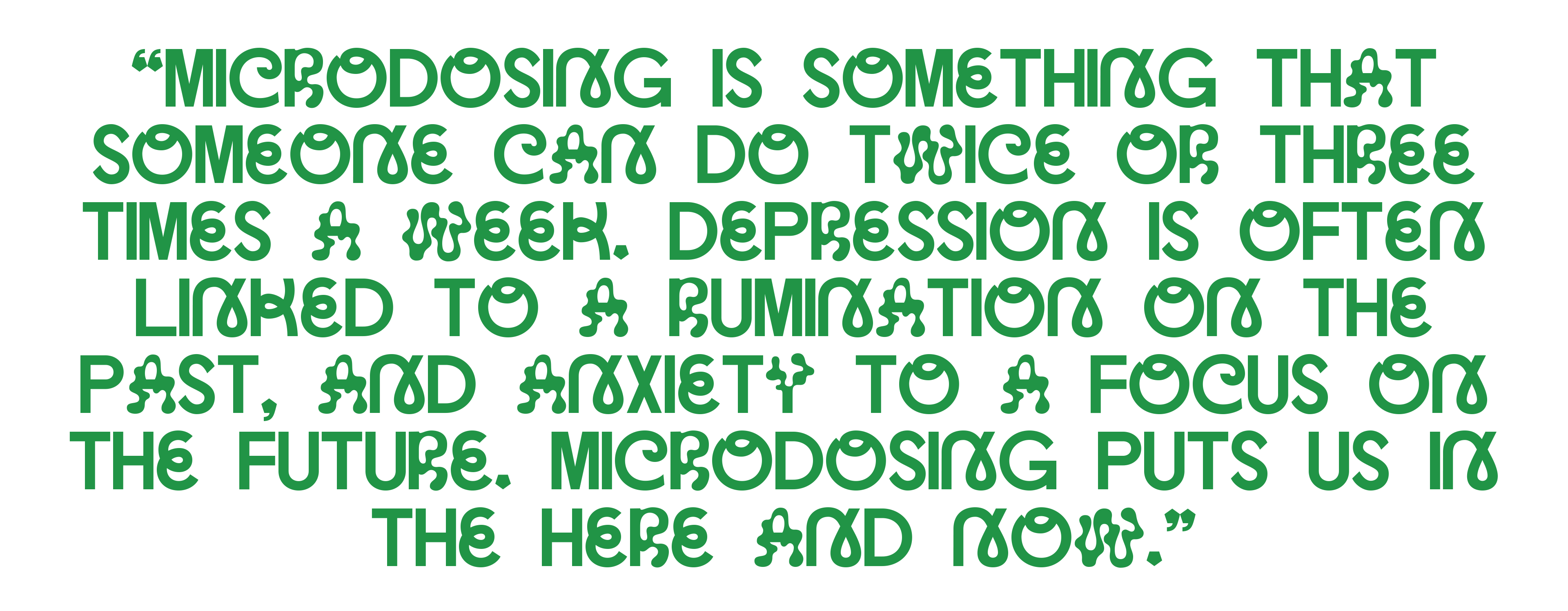This story appears in VICE Magazine's Burnout and Escapism Issue. Click HERE to subscribe.
Anita’s stepfather was a dark force in her life. He would concoct inventive punishments for the children if they didn’t do his bidding. One night, he drove them out to a quarry and left them there for an hour. Another time, he made Anita strip in front of a mirror while he sat and watched. When Anita turned 15, she says he started raping her.
“I honestly don’t think I would be alive without MDMA and LSD,” Anita, a pastry baker from Maine, told me.
But they weren’t her first choices. At 16, she’d started self-medicating with the benzodiazepine Klonopin, snorting it until she passed out and had to be dumped on the doorstep by friends. She got into pot. She smoked four packs of cigarettes a day.
That routine continued until she was 24, when she started to experience extreme anxiety. “I had agoraphobia so bad it was a struggle to leave my home,” says Anita, now 32. “I just wanted to die, and I began obsessing over how.”
A guy she was seeing, Josh, had been experimenting with LSD. He seemed happier, calmer, more optimistic. One night he brought over a couple of tabs. At first she was cautious. She was into obliteration, not mind expansion, and she was completely unaware of the scientific research into the therapeutic value of psychedelics that has been stacking up since the 1950s. “I would have thought that was ridiculous,” she says, “because taking acid had always been described to me as going into this nightmare world where you look into your deepest darkness.”

“If nothing else, these trials are the first step towards changing preconceived notions towards psychedelics,” he says. “I do think psychedelic psychotherapy is quicker [than regular talking therapy]. When you see it work in trials with trained therapists the results are pretty fascinating. But the thing that really works is the integration afterwards with the same therapist—that’s the hard work you need to put in. You don’t walk away from the transcendental experience knowing all the answers.”
For Anita, the psychedelic effects have lasted years beyond her final dose. The downside, she says, is that while they gave her a connection to everything around her and offered a way out of her hellish personal narrative, it has become impossible to stop caring about her impact on the rest of the world, and that can be exhausting.
“There’s such a stigma associated with LSD,” she says. “But I was just a deeply broken girl who wanted to get closer to nature, get closer to herself, and find some peace through whatever nonharmful means.”
Mindfully using psychedelics for their therapeutic benefits used to largely be the domain of those plugged into the psychedelic lifestyle. It seems only logical that now, as news headlines mount up about the progress of clinical trials, public experimentation has similarly slipped into the mainstream. DIY therapy is likely to only gain momentum as we wait out the long scientific and legislative process necessary for these substances to become legitimate medicines.
Sign up for our newsletter to get the best of VICE delivered to your inbox daily.
from VICE https://ift.tt/2SoxCr1
via cheap web hosting
No comments:
Post a Comment